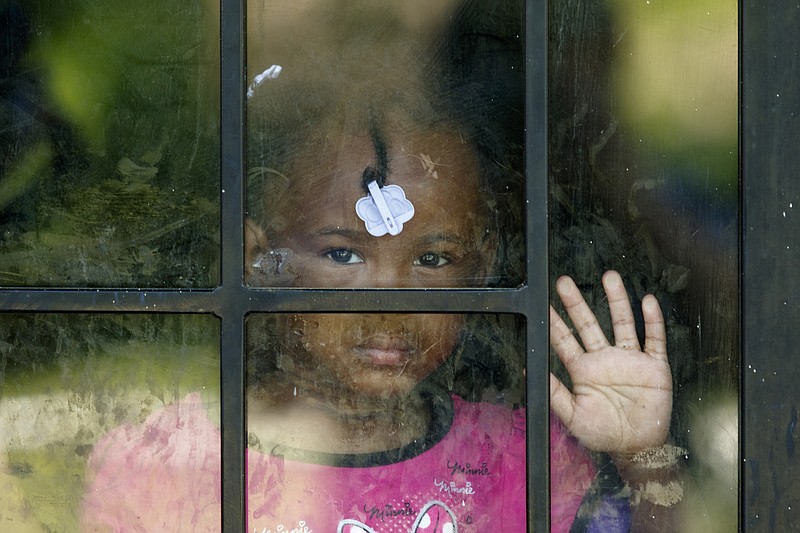View other columns by David Cook
Chattanooga will never stop gang violence.
Never.
Believing otherwise is a fantasy, equivalent to imagining a drug-free Chattanooga. There is no moat around this city; drugs flow in and out like the tides, just like any other global industry.
Similarly, gang violence does not operate within a vacuum, here or within any other mid-sized city. Just as we cannot wall off drugs outside our city - especially since we live along the I-75 corridor, one of the most criminally trafficked interstates in the U.S. - we cannot pretend that gang violence is insular and confined, homegrown and exclusively ours.
They say a butterfly flapping its wings in China affects the weather in New York. What influence can a few phone calls from a gang leader in some faraway, federal prison have on the state of street violence here?
If we were to draw a map of influence - this act of local violence began with this person, who was connected to this person, who was influenced by this person - how far reaching do you imagine that map to be?
If you tug on national gangs in large U.S. cities, do you also tug on gangs here?
"If they go to war in California," one man told me, "they got to go to war here."
In one week this month, there were 12 shootings. Pregnant women. A funeral. Drive-bys. Grocery stores. Front yards.
Was this violence ours exclusively? Or can it be traced outside the city?
Were the shooters local or were they outsiders who rushed in, shot up the city, then rushed out again?
The FBI estimates more than 1.4 million active gang members in the U.S., with nearly 33,000 specific gangs. In its 2015 Gang Report, the FBI emphasizes the role of prison gangs - based and operated in American prisons - on gang activity in the American streets.
"Due to their grip on street gangs, prison gangs are able to remain anonymous in their crimes and in their effect on national crime rates," the report reads.
The FBI says street and prison gangs have a "symbiotic relationship." Pull on one, and you pull on the other. This is the cruelest irony: no city can arrest its way out of the problem.
"Street gangs commit crimes and impact communities across the country on behalf of prison gangs," the FBI continues.
And what of the growing influence of transnational gangs, like the Mexican Mafia and MS-13, the latter of which has already been identified in the area? Like shifting geopolitics, will local black gangs align themselves with Hispanic gangs, or against them? Will violence escalate over competing drug markets and turf?
"We will not relent," Mayor Andy Berke proclaimed in his State of the City speech. "When confronted with a challenge, we address it head on and succeed."
That simply isn't true.
Yes, the speech sounds good emotionally and politically, but Berke's grandiosity, as if somehow, Chattanooga could "succeed" in stopping national and transnational gang activity, is the language of fiction.
It also creates false hope while burdening the police with unrealistic expectations, as if all of this is something they alone can solve.
Instead of gang violence, we should shift the nature of our focus onto things we have greater control over.
We should talk about unemployment rates, reading levels and the amount of trauma in certain ZIP codes.
We should talk about levels of domestic violence, addiction and funding for neighborhood schools.
Go to the headwaters of any gang and you'll always find the same: fractured communities, neglected by any American Dream, populated with traumatized human beings and criminal opportunities.
That's a failure of domestic policy, from Los Angeles to East Lake. We reap what we sow: generations of urban neglect leads to generational violence.
So here's the paradox:
Berke is wrong.
But he's also right.
We must act as if gang violence is entirely and exclusively ours. Knowing it is national and international in scope, we must act otherwise.
We must fund and invest in the most local of programs. To respond to the far-reaching influence of gang violence, we must be intimate. Face-to-face.
At the beginning of his State of the City, Berke applauded all the social workers, employers, teachers, pastors, first-responders and volunteers in the room. They're all involved in what can be called a slow shift against violence: gangs recruit one child, yet we educate, employ and transform two.
Successfully.
Relentlessly.
David Cook writes a Sunday column and can be reached at dcook@timesfreepress.com or 423-757-6329.

